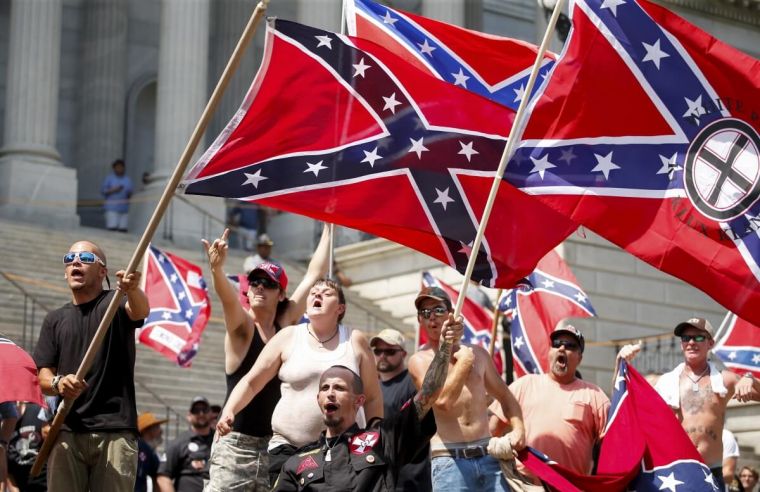Redemption is always on offer – even to the vilest bigot

Upon seeing the headline, I felt another wave of disappointment and disgust. Another clergyman who's sold out to the idol of nationalism and racialism.
After the seemingly depressing litany of evangelical stooges who've made excuses for Donald Trump's equivocation in the face of neo-Nazi protests, there was more bad news. A priest had been found to be a member of the Ku Klux Klan.
As I flew off into despair about this I re-read the headline. Hang on. I'd got the wrong end of the stick. 'Remarkable: the former KKK leader who became a Catholic priest.'
I shouldn't have been so quick to judge. Forty years ago, he'd been a member of the KKK, but he had long since left, repudiated his former life and devoted himself to service. It's an incredibly inspiring story – made all the more powerful by the fact that Fr William Aitcheson told it himself in an attempt to help the bitter, twisted souls who marched on Charlottesville see the error of their ways.
It's inspirational stuff and should be widely read. Fr Aitcheson says, 'While 40 years have passed, I must say this: I'm sorry. To anyone who has been subjected to racism or bigotry, I am sorry. I have no excuse, but I hope you will forgive me.'
Without dwelling on the past, he seeks to learn from it and help others to see the light. 'Our actions have consequences and while I firmly believe God forgave me – as he forgives anyone who repents and asks for forgiveness – forgetting what I did would be a mistake,' he says. 'Those mistakes have emboldened me in my journey to follow the God who yearns to give us his grace and redemption.'
This inspirational agenda mustn't be forgotten in the (correct and needed) strong oppositional response to the white nationalists of Charlottesville. In the first instance we have to stand up to neo-Nazis and their ilk because they are an imminent danger to our society. But in the long term, we have to believe that the individuals involved can and might well change.
That's a story which has been told time and again, since the Bible itself. Paul, the man who wrote half the New Testament and started churches across the known world had begun life as a zealous persecutor and murderer of Christians.
In the more recent past, there has rarely been a group more despised than the Wesboro Baptist Church – the cult which regularly protests funerals of soldiers and celebrities with signs proclaiming God's alleged hatred of gay people.
The imminent need when the Westboro Baptist Church comes to town replete with its banners of hate is for them to be opposed and drowned out, something which has been done with increasing levels of effectiveness and creativity over the years.
Yet if our engagement with hate groups like the KKK and the Westboro Baptist Church stop there, then we're selling short the people who are members. Some may remain unrepentant bigots till the day they day. Others, however, can change. Just take the story of Magan Phelps-Roper. A member of the Westboro Baptist Church since the day she was born, Phelps Roper was a mainstay at their demonstrations. Eventually she gradually began to move away from the group and has since begun a new life. In a wonderful Ted Talk about her journey out of the hate group she shows humility and grace.
The same is true of Fr Aitcheson and his journey out of the KKK. 'The irony that I left an anti-Catholic hate group to rejoin the Catholic Church is not lost on me,' he wrote. 'It is a reminder of the radical transformation possible through Jesus Christ in his mercy.'
Both Aitcheson and Phelps-Roper show that change is possible, and that redemption is always on offer.
None of this is to dismiss the very real, structural issues of racism and prejudice that persist in America and which have reared their ugly heads so violently this past few weeks. Those structural issues must be tackles unflinchingly.
But if we can learn to hate the injustice that we see, without damning the individual perpetrators forever, we might be surprised who, like the KKK man turned priest and the child bigot turned eloquent advocate, becomes the modern day Saul of Tarsus.











